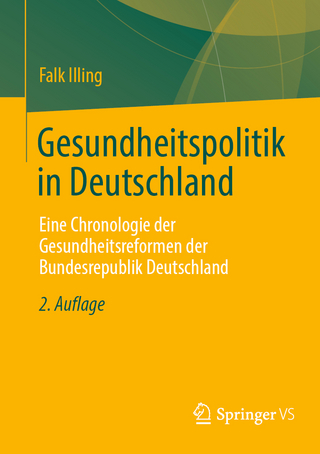
Political Pluralism, Disagreement and Justice
Routledge (Verlag)
978-1-138-22896-2 (ISBN)
This book poses the question: How can we organize society in such a way that our disagreement about facts and norms works to the benefit of everyone? In response, it makes the argument for polycentric democracy, a political arrangement consisting of various political units that enjoy different degrees of independence.
It is argued that to progress towards justice, we first need to change our attitude towards reasonable disagreement. Theorists have always viewed reasonable disagreement as nuisance, if not as a threat. However, this work puts forward that the diversity of perspectives which underlie reasonable disagreement should be viewed as a resource to be harvested rather than a threat to be tamed. Resting on two key arguments, the author proposes the idea of polycentric democracy as the most capable method of making pluralism productive. The book explores what such a political order might look like and concludes that only an institutional system which is capable of profiting from diversity, such as polycentric democracy, might reasonably be expected to generate an overlapping consensus.
Continuing in the tradition of Karl Popper and Friedrich August von Hayek, this book lies at the intersection of philosophy, political economy and political theory. It will be of great interest to academics and scholars working in philosophy, politics and economics.
Julian F. Müller is a Research Associate at the University of Hamburg, Germany. He works at the intersection between political philosophy, social epistemology and political economy. His research into political disagreement has won several research awards.
List of illustrations. Acknowledgements. Introduction.
Part I: Escaping modus vivendi 1. The model: debating friends. 2. Rawls: property-owning democracy. 3. Gutmann and Thompson: deliberative democracy. 4. Buchanan: the neoliberal state. 5. Escaping modus vivendi: summary.
Part II: How to make use of diversity? 6. Diversity: nuisance or asset? 7. Deliberation and the gains of diversity. 8. Polycentric paradigm.
Part III: Polycentric democracy 9. A polycentric political order. 10.The argument for polycentric democracy. 11. Concluding remarks.
References. Index.
| Erscheinungsdatum | 04.06.2019 |
|---|---|
| Reihe/Serie | Routledge Frontiers of Political Economy |
| Zusatzinfo | 10 Tables, black and white; 1 Line drawings, black and white; 1 Illustrations, black and white |
| Verlagsort | London |
| Sprache | englisch |
| Maße | 156 x 234 mm |
| Gewicht | 476 g |
| Themenwelt | Geisteswissenschaften ► Philosophie |
| Sozialwissenschaften ► Politik / Verwaltung ► Politische Systeme | |
| Sozialwissenschaften ► Politik / Verwaltung ► Politische Theorie | |
| Wirtschaft ► Allgemeines / Lexika | |
| Wirtschaft ► Volkswirtschaftslehre ► Wirtschaftspolitik | |
| ISBN-10 | 1-138-22896-6 / 1138228966 |
| ISBN-13 | 978-1-138-22896-2 / 9781138228962 |
| Zustand | Neuware |
| Informationen gemäß Produktsicherheitsverordnung (GPSR) | |
| Haben Sie eine Frage zum Produkt? |
aus dem Bereich


